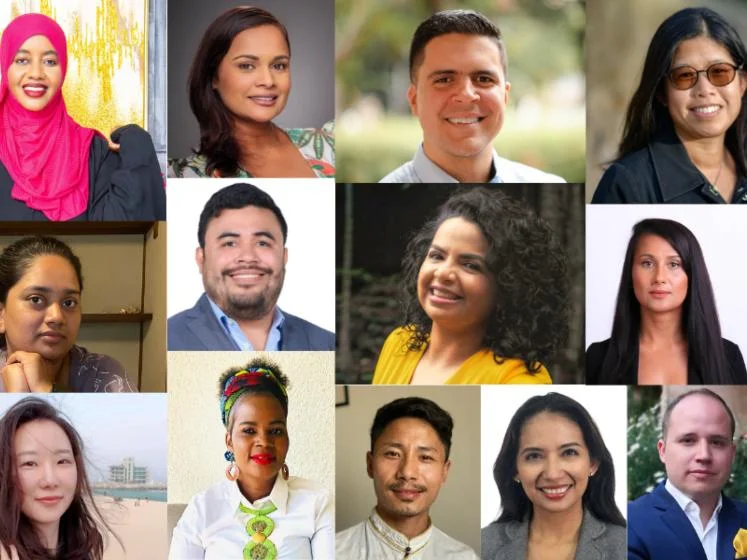Advocating for peace and justice: Meet the 2024-25 Atlantic Fellows for Social and Economic Equity

The 18 new Fellows joining the International Inequalities Institute at LSE this autumn as Atlantic Fellows for Social and Economic Equity are mid-career social-change leaders from 17 different countries across the world who are working on building more equitable and just societies in fields ranging from peacebuilding to youth empowerment and refugee rights.
The mission of the Atlantic Fellows for Social and Economic Equity (AFSEE) programme is to create and support a global community of changemakers who are working to address social and economic inequalities. Through research, education, and practice, AFSEE supports and encourages dialogue and collaboration between a range of stakeholders, including academics, activists, artists, practitioners, and policymakers to develop new thinking, ideas, and values-led approaches to tackling social and economic inequalities.
"What inspires me as a changemaker is the opportunity to collaborate with others to develop bold policy alternatives to the status quo. In the face of the current global crisis, we can't afford to remain indifferent and keep doing the same. We need to act swiftly and cross borders to create a more equal and inclusive world where systemic barriers are dismantled, and resources and opportunities are equitably distributed" - Vicente Silva Didier, 2024-25 Atlantic Fellow for Social and Economic Equity
This year’s intake spans the globe, with new Fellows from Chile, Colombia, Costa Rica, El Salvador, Ghana, Honduras, Hungary, India, Kenya, Malaysia, Scotland, South Korea, Syria, Tibet, Trinidad and Tobago, United States, and Zimbabwe. They include a climate finance and environmental governance specialist from Trinidad and Tobago, an arts practitioner and filmmaker from Malaysia, a human rights and gender activist from Ghana, a South Korean journalist and gender equality specialist, an Indian researcher working withnomadic tribal communities, and a social innovator working on prison reform in Costa Rica.
Eight of the 18 new Fellows are Residential Fellows and will undertake the MSc in Inequalities and Social Science at LSE during the 2024-25 academic year. They and their ten Non-Residential peers will also participate in the four fellowship modules during their active fellowship year, led by AFSEE Executive Director Professor Armine Ishkanian and informed by and in collaboration with the LSE International Inequalities Institute’s research-rich environment. The interdisciplinary modules include academic lectures, roundtables with Senior AFSEE Fellows, engagement with researchers and practitioners, leadership training, community-building, and narrative and communications skills work. This will also be the first year that AFSEE Non-Residential Fellows will be awarded a Postgraduate Certificate in Social and Economic Equity upon successful completion of the active fellowship year.
This year’s Fellows have been chosen from an impressive worldwide pool of applicants that has grown every year since the funded fellowship was established in 2016 via a record £64 million grant to LSE from the Atlantic Philanthropies. When they complete their active fellowship year, the 18 Fellows will join a lifelong community of members from all the seven Atlantic Fellows programmes, who collectively focus on work to advance fairer, healthier, and more inclusive societies.
The 2024-25 Cohort of Atlantic Fellows for Social and Economic Equity are:
Jen Ang (Scotland)
Juan Cardoza-Oquendo (United States)
Nik Nasha Damia (Malaysia)
Lauren Díaz Arias (Costa Rica)
Dany Diaz Mejia (Honduras)
Badrul Hisham Ismail (Malaysia)
Judit Ignacz (Hungary)
Sasha Jattansingh (Trinidad and Tobago)
JiHye Jeong (South Korea)
Solomon Atsuvia (Ghana)
Nousha Kabawat (Syria)
Lucia Makamure (Zimbabwe)
Hadija Mohamed Bonaya (Kenya)
Fátima Pacas (El Salvador)
Vicente Silva Didier (Chile)
Vardini M Sukumar (India)
Kunsang Tsephel (Tibet)
Juan David Velasco Montoya (Colombia)